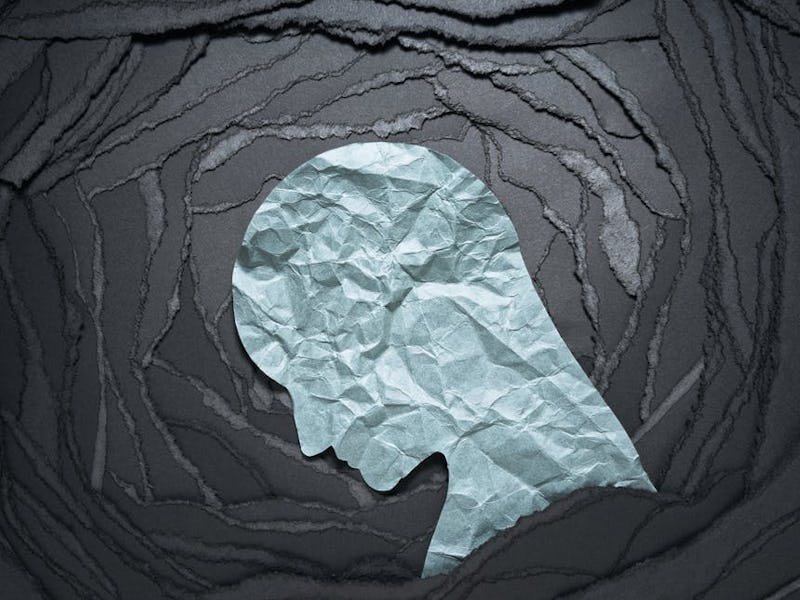Has an effective depression aid been under our nose the whole time?

Depression is common, affecting an estimated 264 million people of all ages worldwide. While the causes of depression are varied and complex, genetics, changes in brain chemistry, and environmental factors (such as stress or traumatic events) all play a part.
Historically, depression was thought to result from a chemical imbalance in the brain. But researchers now think that this is actually a symptom of depression – not the cause. Alongside a potential chemical imbalance, depressed people may also show changes in how their brain networks connect and alterations in their function and anatomy. This means that depressed people have differences in volume, metabolism, and activity in certain areas of their brains.
What part of the Covid-19 pandemic do you think causes the most confusion? We want to know. Take the Inverse reader survey
A number of studies have now begun looking into the presence of inflammation in the blood and brains of some depressed people. Knowing inflammation is present in depression could lead to new treatments.
Brain inflammation — Inflammation is not always a bad thing since it’s the way in which the body’s immune system protects against a threat. But chronic and severe inflammation can change different systems in the body. For example, brain inflammation can eventually alter its chemical balance, including how the brain’s nerve cells communicate with each other. This in turn can change how the brain functions.
People with chronic inflammatory diseases such as diabetes, cardiovascular disease, and autoimmune disorders are shown to be at greater risk of developing depression. Depression can also be one of the symptoms of many inflammatory neurological conditions, such as multiple sclerosis and Parkinson’s disease. Depression may even be a risk in developing Alzheimer’s disease later in life. Although not certain, brain inflammation is thought to be the cause.
Studies have even shown that the brains of patients with depression have higher levels of inflammation. Their microglia – the brain’s immune system cells – are also more active. This increased activity could end up being detrimental, leading to changes in how the brain cells function and communicate.
Another study found that people with depression had more neutrophils, lymphocytes, and monocytes (types of white blood cells) and inflammatory proteins in their blood compared to those without depression, which indicates inflammation in the body in general.
Most treatments for depression still focus on either helping patients understand their behaviors or increasing levels of certain neurotransmitters (such as serotonin) in the brain. But these aren’t always successful in treating depression. And although antidepressants have been found to be more effective than a placebo, not all patients respond to them.
Repurposing antibiotics — Researchers have recently been looking into whether existing drugs can be repurposed to treat depression. One study found that minocycline, an antibiotic used to treat conditions such as urinary tract infections, skin infections, and chlamydia, could stop mice from developing depressive behavior and depression-related cognitive deficits (such as memory issues).
Minocycline might be able to prevent depressive behaviors as it’s able to suppress the inflammatory response of microglia. Although targeting microglia has been discussed as a future focus for depression studies, this study showed that minocycline stops both the microglia and the brain neurons from releasing a stress-induced inflammatory protein called HMGB1 into the brain.
Early studies of minocycline have shown promise.
Not only does minocycline stop bacteria from growing, but it has also shown promise in modifying the immune system’s response and acting as an anti-inflammatory. As it can easily cross the blood-brain barrier and get into the brain, it has been found to have neuroprotective properties and is shown to be useful in reducing the severity of diseases such as Huntington’s disease, and amyotrophic lateral sclerosis.
But, as with other medications, minocycline has its limitations. Long-term use has been shown to affect the “good” bacteria in the body and may cause darkening of skin and teeth.
Previous animal studies looking at minocycline for depression have also shown limitations in that it only had antidepressant effects in male animals. Although the reason for this isn’t fully understood, it has been repeatedly shown that immune responses differ between males and females, including microglia responses. However, animals and humans may have different immune responses.
In human studies, minocycline has been shown to have antidepressant effects. One study showed improvement of the depressive symptoms (including low mood) in mild to moderate depression in HIV patients when minocycline was used on its own. Other studies have focused on minocycline as an add-on to antidepressants – and also found encouraging results.
Although few large-scale human studies have been carried out on the effects of minocycline on depression, the ones that have been conducted confirm the antidepressant effects. But more studies are needed to look at whether minocycline is only a useful treatment for certain groups. Researchers will also need to look at whether relapse occurs after use if it has any side effects, and whether it can be effective in treating depression where brain inflammation isn’t observed.
Nevertheless, this antibiotic, as well as other medications that can alter the immune system’s response may be potential candidates for treating depression – especially in patients who don’t respond to current treatment options.
This article was originally published on The Conversation by Eleftheria Kodosaki at Cardiff Metropolitan University. Read the original article here.